How to become an "airsmith" is question that I get asked often and it is still a tough one. I really wouldn't know where to tell you to start but I do know that the learning process never ends. Gaining a complete understanding of what it is you are working on and what you expect to accomplish seem to be the key to success in this game.
I was lucky enough to have been born with a talent for this type of thing and having grown up in a gunsmithing environment certainly helped. I wouldn't have any idea what type of courses one could take to gain the background needed but something along the line of Mechanical Engineering couldn't hurt. All that I have learned about Paintball equipment has come from the need to have better equipment. As I solved my own problems with the equipment and gained the performance I desired, it showed on the field and others simply wanted me to apply what I had learned, to their equipment. I guess you could say that I became an "Airsmith" when those that wanted my services began calling me an airsmith and were willing to pay me to get their equipment to perform like mine did. To be perfectly honest, there was a great deal of trial and error involved.
I did a lot of research into pneumatics and CO2 itself, but I really don't know any of the titles of the books that I referenced. (was a long time ago) My biggest problem in those days was to gain a full understanding of CO2 and what makes it work as a propellant. Then I had to figure out how to get the most out of it. (a lot of trial and error here too )
Please keep in mind that there is a great deal more to being a qualified "Airsmith" than bolt on parts, different hardware and the "Gadgetude" that more and/or different is better. Keep an open mind when you work on a piece of equipment and go at it as though you were dissecting it so as to know exactly what makes it tick. Then try to figure out how to keep it ticking. I usually look into every piece that I work on with 2 questions in mind: 1) Is this the best it can be? 2) What can I do to make it better? In reality, it isn't often that you can honestly answer the first question with a yes until you have run out of answers to #2.
Hope some of this might help point you in the right direction.
Helpful Classes/Research
- Metallurgy
- Metals technology
- Business
- Fluid Dynamics
by Glenn Palmer
